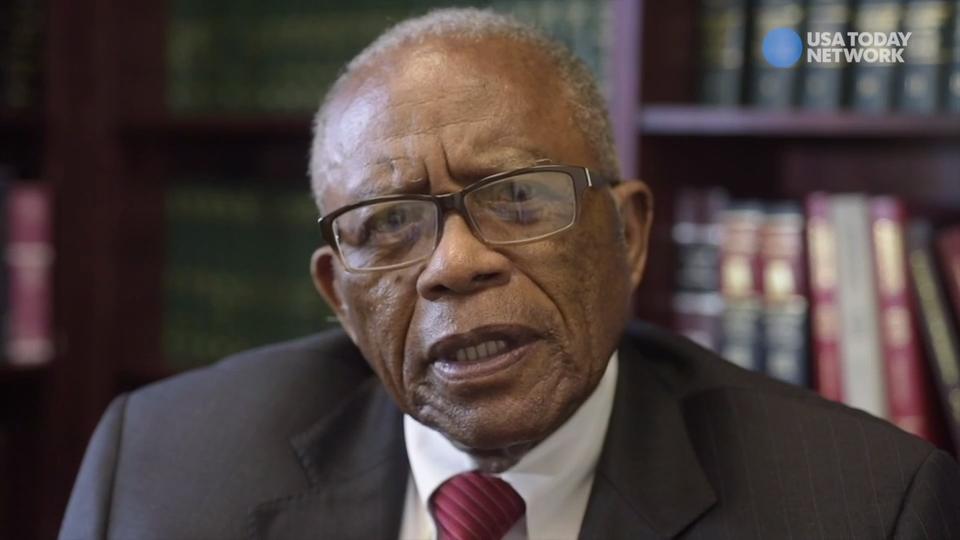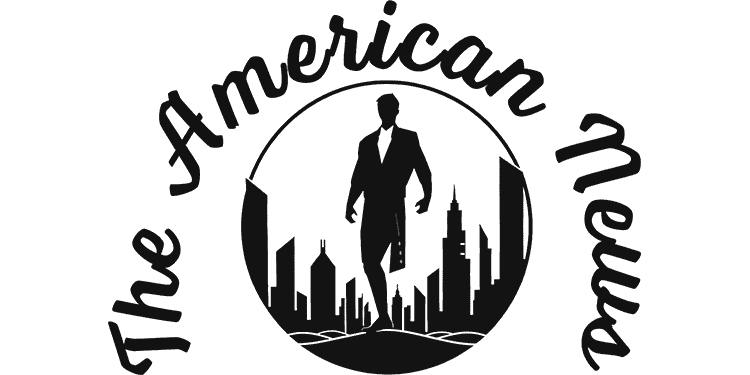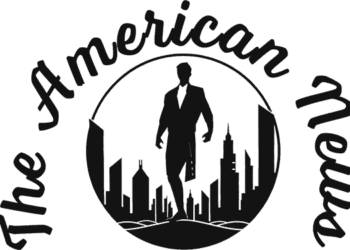

Fred Gray, I am an American
Civil Rights Attorney Fred Gray discusses his work in the civil rights movement at his offices in Tuskegee, Ala. on Tuesday February 7, 2017. #weareonenation I am an American
Mickey Welsh / Advertiser
Seminal Civil Rights Attorney Fred Gray, 93, who represented such iconic figures as Martin Luther King, Jr. and Rosa Parks, said although America has come a long way since the 1960s, there’s more work to be done.
Keynote speaker of the Columbia Peace and Justice Initiative Legacy Night fundraiser Thursday, Gray shared his experiences as lead attorney on groundbreaking cases that paved the way for President Jyndon B. Johnson to sign the Voting Rights Act of 1965.
An audience of 500 packed the sanctuary of Maury Hills Church in Columbia, as CPJI co-founders Trent Ogilvie and Russ Adcox and vice president Demetrius Nelson led the event.
Not bothered by serving as a behind-the-scenes legal powerhouse, Gray said he never desired to be out front “talking and preaching,” but preferred to concentrate on upholding the U.S. Constitution.
“I wanted to do legal work,” Gray said, who has sustained a 70-year legal career. “I wanted to obtain Constitutional rights that all other citizens had. I didn’t need to talk and preach. I didn’t have to do that or be in a contest with them.”
More: Peace & Justice Committee names artist to sculpt Thurgood Marshall statue on E. 8th in Columbia
He said it wasn’t difficult for him to decide what profession to pursue, and he began making an impact on America in his early 20s.
“I decided I wanted to destroy everything that was segregated,” Gray said. “They told me lawyers help people solve problems. When I saw the problems that we had, I decided I really wanted to do something about it. That’s why I became a lawyer.”
“First, I am an American,” Gray also said in a USA Today video shown to the audience ahead of his speech. “America is the greatest country in the world.”
A walking history of the civil rights era, Gray worked alongside King for over a decade, planned peaceful protests with Rosa Parks, represented victims of the Tuskegee Syphilis Study and collaborated with Thurgood Marshall.
King called him “a brilliant young” attorney and “chief of the protest movement.”
Coming full circle in Columbia Thursday, Gray’s visit allowed the CPJI to exceed its goal of raising $140,000 to erect a statue of Thurgood Marshall at East 8th Street and North Main Street in Columbia as part of a project to tell the history of the Columbia Uprising of 1946, also known as the Columbia Race Riot of 1946.
According to Russ Adcox, co-founder of CPJI with Trent Ogilvie, $190,000 was raised at the event for the project.
Gray recalled going to Marshall for advice early in his legal career. As an attorney and part of NAACP, Marshall served as part of the legal counsel that led to the acquittal of almost 100 black men after the uprising in 1946 in Columbia.
Gray said he could not refuse CPJI’s invitation to speak after reading a 14-page invitation, or proposal outlining the project (approved last October by Columbia City Council) and being notified that he himself inspired the project.
More: How a dispute over a broken radio launched a civil rights movement
More: ‘Forgotten history’: Can Columbia’s East 8th Street neighborhood be revitalized?
During a question and answer session, Gray recapped the harrowing days after Bloody Sunday in Selma, Alabama when he filed a lawsuit against the state of Alabama, arguing the state had a legal obligation to protect protestors who desired to march from Selma to Montgomery, Alabama in the name of voting rights.
Civil Rights Activist John Lewis, who resided in and died in Nashville after serving as a U.S. Representative, led over 600 marchers across the Edmund Pettus Bridge in Selma, Alabama where they were attacked by state troopers, dubbing the violent day Bloody Sunday.
“I told [Martin Luther King, Jr.] this is the most important case in the movement we have ever had that could set the tone for [the rest of the movement]. I needed assurance no one would cross that bridge,” Gray said. “He listened, and said ‘I understand.'”
Ultimately, King exercised patience and leadership by postponing the march so that the group could get permission from a judge to resume the long arduous trek. Instead, the group prayed and then turned around and walked to a nearby church.
Gray won the case and “the rest is history,” he said, as history books document the peaceful march that became a turning point in the fight for civil rights.
Faith, past upbringing and looking forward
Gray highlighted his faith and upbringing as playing a key role in his tenaciousness as a lawyer and unbreakable will to never give up until equal rights were obtained in America.
“I have always kept Christ first in my life. I listened to my mother,” Gray said. “With each case, I always asked the Lord what he want me to help the client get what they want.”
Struggle for justice continues
Gray cited the progress the country has made in civil rights but highlighted lingering struggles today.
“The struggle for equal justice continues. Notwithstanding our progress in recent years, we have seen an increase in racism, including the burning of churches, the resurgence of hate groups all over the nation,” Gray said.
“These activities increased when Mr. Obama was president. It has continued to increase since the inauguration of President Biden, not to mention the attempt to change the results of the 2020 presidential election by force on Jan. 6, 2021. The US Supreme Court for over a quarter of a century pioneered civil rights for minorities including women but in recent years , there has been a change in that court. And it has made changes , reversing itself on many of the constitutional principles, including the Shelby [Shelby County, Alabama v. Holder] case which is declared unconstitutional as part of the Voting Rights Act.”
Thurgood Marshall statue to be erected in Columbia
Gray praised the CPJI and Columbia City Council for the Thurgood Marshall statue project.
“You decided on your own that you don’t try to hide things under the rug,” Gray said. “The new generation might not know anything about it, so you have to educate them on what took place and then let them look at what the history shows, and then decide what we can learn and what we can do …. be creative and solve our problems.”
“What you’ve done here in Columbia is a good example of that.”
Columbia Mayor Chaz Molder declared Sept. 19, 2024 Fred Gray Day and Gray was presented with the CPJI Legacy Award, which he accepted on behalf of the known and unknown heroes of the civil rights movement.
Gray resides in Selma, Alabama where he continues his work towards equality as president of the Tuskegee Human & Civil Rights Multicultural Center.
Kerri Bartlett is editor of The Daily Herald and Middle Tennessee Region Group Editor.
Source link : http://www.bing.com/news/apiclick.aspx?ref=FexRss&aid=&tid=66ed89ed0b684e6fb3497dfd12cd66ed&url=https%3A%2F%2Fwww.tennessean.com%2Fstory%2Fnews%2Fhistory%2F2024%2F09%2F20%2Fcivil-rights-attorney-fred-gray-speaks-at-columbia-cpji-fundraiser%2F75301070007%2F&c=6115413815521219365&mkt=en-us
Author :
Publish date : 2024-09-20 03:23:00
Copyright for syndicated content belongs to the linked Source.







